By Treatment
- Liposuction Surgery
- Hepatitis Treatment
- Ayurvedic Treatment in India
- Naturopathy Treatment in India
- Spa Therapy Treatment in India
- Aromatherapy in India
- Liver Transplant
- Liver Fibrosis
- Liver Tumor
- Liver Cancer
- Liver Cirrhosis Treatment
- Coronary Artery Bypass Grafting Surgery
- Heart Valve Replacement
- Angioplasty
- Aortic Valve Replacement
- ASD/VSD closure surgery in India
- Cardiac Tumours in Children
- Cardiac Ablation Surgery
- Renal Angiogram
- Cardiac Tumour Treatment
- Pacemaker Implant
- CRT-D Implant
- CRT-P Implant
- Hernia Surgery
- Spine Surgery
- Spine Tumor Surgery
- Spinal Cord Cancer
- Cervical Spine Surgery
- Spinal Fusion Surgery
- Facet Joint Spine Surgery
- Knee Replacement Surgery
- Rhytidoplasty Surgery in India
- Hip Replacement Surgery
- Shoulder Replacement Surgery
- Cataract Surgery
- TAVR (Transcatheter Aortic Valve Replacement) Treatment in India
- Breast lift surgery in India
- Face Lift Surgery
- Rhinoplasty surgery in India
- Yoga and Meditation in India
- Thigh Lift surgery in India
- Breast augmentation
- Robotic Knee Replacement Surgery
- Mentoplasty Treatment in India
- Arthroplasty surgery in India
- Cordotomy Surgery
- Arthroscopy Surgery in India
- Macular Degeneration
- Spinal Decompression Surgery
- Penile Implant Surgery in India
- Erectile Dysfunction Treatment in India
- Diabetes cause Impotence Treatment India
- Peyronie's treatment in India
- Urethroplasty Surgery in India
- Artificial Urinary Sphincter Surgery in India
- Phalloplasty Surgery in India
- Penectomy Surgery India
- Priapism Treatment in India
- Multiple Sclerosis
- Hysteroscopic Surgery
- LEEP (Loop Electrosurgical Excision Procedure) Treatment
- Vaginal Hysterectomy Surgery
- Lasik Eye Surgery
- Laparoscopic Myomectomy
- Glaucoma Treatment in India
- Hysteroscopy Treatment
- Astigmatism Treatment in India
- Corneal Transplant
- Cochlear Transplant
- Dialysis & Kidney Transplant
- Hysteroscopic Myomectomy
- Tympanoplasty Surgery
- Block Dissections of Neck, Endolymphatic Sac in India
- Interstitial Cystitis Treatment
- Total Laparoscopic Hysterectomy (TLH)
- Multiple Scoliosis Surgery
- Myomectomy Treatment
- Stapedectomy Surgery
- Thyroid Cancer Treatment
- Dilation and Curettage
- Trigger Point Injection (TPI)
- Deep Brain Stimulation (DBS)
- Bone Marrow Transplant
- Scoliosis Surgery in India
- Spondylolisthesis Spine Treatment
- Colposcopy
- Ossiculoplasty surgery in India
- Laparoscopic Uterine Suspension Surgery
- Rotator Cuff Tear Surgery
- Laryngectomy Surgery in India
- Micro Laryngeal surgery in India
- Laparoscopic Supracervical Hysterectomy
- Pelvic Laparoscopy Surgery
- Functional Endoscopic Sinus Surgery in India
- Cardiology
- Liver Disease Treatment
- Osteoarthritis Spine Treatment
- Arthrodesis Surgery
- Gallbladder Cancer Treatment
- Pancreatic Cancer Treatment
- Meningiomas Treatment
- Ovarian Cancer Treatment
- Testicular Cancer Treatment
- Anterior Cruciate Ligament (ACL) Surgery
- Bone Marrow Cancer
- Orthopaedics & Joint Replacement
- Degenerative Disk Spine Treatment
- Herniated Disc Spine Treatment
- Neurology and Neurosurgery
- Anal Cancer Treatment
- Kidney Cancer
- Minimally Invasive Spine Surgery
- Bladder Cancer Treatment
- Stomach Cancer Treatment
- Mouth Cancer Treatment
- Bone Cancer Treatment
- Throat Cancer Treatment
- Breast Cancer Treatment
- Chemo Treatment
- Colon Cancer Treatment
- Esophageal Cancer Treatment
- Obstetrics & Gynaecology
- Herniated Disc Surgery
- Aortic Stent Grafting
- Head and Neck Cancer Treatment
- Artificial Spine Lumbar Disc Replacement
- Spine Osteotomy
- Lumbar Laminectomy for Spine or Spinal Decompression
- Lungs Cancer Treatment
- Cancer Treatment
- Breast Surgery
- Cardiothoracic & Vascular Surgery
- Head & Neck Cancers
- Prostate Cancers Treatment
- Neuroscience
- Heart Transplant
- Liver Surgery
- Pediatric Neurosurgery
- Coronary Angiogram
- End-Stage Liver Disease Treatment
- Peripheral Angioplasty
- Cardiac Resynchronization Treatment
- Radiofrequency Ablation
- Automatic Implantable Cardioverter Defibrillator
- Percutaneous Transvenous Mitral Commissurotomy
- Coronary Angioplasty
- Cerebral Angiogram
- Peripheral Angiogram
- Angiography
- Eyelid Surgery
- TLIF Surgery
- Ear Surgery
- Body Lift Surgery
- Endoscopic Disc surgery
- Endoscopic Cranial Surgery
- Stroke Treatment
- Renal Angioplasty
- Leukemia Treatment
- Peripheral Neuropathy Treatment
- Parkinson’s disease
- Cardiac Catheterization
- Percutaneous Transluminal Angioplasty
- Pericardial Cysts
- Cardiac Arrest Treatment
- Bariatric & Metabolic Surgery
- Deceased Donor Liver Transplant
- Living Donor Liver Transplant
- Electrophysiology Study (EPS)
- Shoulder and Elbow Replacement
- Urology
- Pediatric Heart Surgery
- Cardiac Surgery
- Vascular Surgery
- Endoscopic Surgery
- Pacemaker Implantation
- Urological Oncology
- Alzheimer’s Disease Treatment
- Reconstructive Urology
- Endocrinoly
- Lumbar puncture
- Pediatric Liver Transplant
- GI surgery
- GI Oncology
- Hemodialysis
- Hemorrhoids Surgery
- Endoscopy
- Gastric Bypass Surgery
- Renal Failure
- Headache
- Kidney Biopsy
- Sleep Disorders
- Craniotomy Surgery
- Atrial Fibrillation Surgery
- Heart Implants
- Neuropathy
- Robotic Urology
- Blood Clot Brain Surgery
- Laser Urological, Surgery
- Brain Haemorrhage Treatment
- Retinal Surgery
- Laser Eye Surgery
- Heart Valve Disease
- Renal Transplant
- Hematology
- Thalassemia Treatment
- Sports Injury
- Sickle Cell Anemia
- Cosmetic and Plastic Surgery
- Robotic Joint Replacement
- Multiple Myeloma
- Pediatric oncology
- Medical oncology
- Minimal Invasive Brain Surgery
- Open Heart Surgery
- Rheumatology & Clinical Immunology
- Lymphoma
- Neonatology
- Laparoscopic Surgery
- Radiology
- Blood Cancer
- Dermatology and Cosmetology
- Paediatric Cardiology
- IVC Filter Insertion Procedure
- Minimal Access Surgeries
- Paediatric & Adolescent Endocrinology
- Dentistry and Maxillofacial Surgery
- Diabetology
- Interventional Cardiology
- Reconstructive Surgery
- Dietetics and Nutrition
- Oncology
- Radiation Oncolgy
- Aplastic Anemia
- Gynaecology - Oncology
- Brain Tumor Surgery
- Ophthalmology
- Abdominal Surgery
- Haemato Oncology
- Onco-Neurosurgery
- Thoracoscopic surgery
- Acute Leukaemia Treatment
- Kidney Failure Treatment
- Oncology & Oncosurgery
- Hepatobiliary
- Gland Surgery
- Liver Biopsy
- Gastroenterology
- Nephrology
- Interventional Radiology
- Transplant Nephrology
- Urological Cancers
- Neurovascular Surgery
- Internal Medicine
- Kidney Stone
- Heart Surgery
- Radiosurgery
- ENT & Cochlear Implant
- Chronic Liver Disease
- Cosmetic Eye Surgery
- Minimally Invasive Surgery
Robotic Knee Replacement Surgery in India
Knee Replacement surgery is a mandatory treatment for patients who are in pain due to an injury, arthritis, or another ailment affecting any component of their knee. When no other therapy seems to be working, doctors may offer surgery. The location of the implant is critical in Knee Replacement.
Yet, the fear of going under the knife, of blood, of more bone injury, outweighs the agony they are experiencing. This is why Robotic Knee Replacements are performed only when patients have exhausted all non-operative options.
Robotic knee replacement surgery, also known as robot-assisted knee replacement, is an advanced surgical procedure that employs robotic systems to assist surgeons in performing knee replacements with enhanced precision and accuracy. This technique integrates the use of a robotic arm, guided by the surgeon, and advanced imaging technology to create a highly detailed, three-dimensional model of the patient’s knee.
The robotic system aids in planning and executing the surgery, allowing for precise bone cuts and optimal placement of the knee implant. This precision can result in improved alignment, better fit of the prosthetic components, and potentially a more natural-feeling and longer-lasting knee joint.
Additionally, robotic knee replacement surgery often involves less invasive techniques, which can lead to smaller incisions, reduced blood loss, and quicker recovery times for patients. This innovative approach aims to enhance surgical outcomes, minimize postoperative pain, and expedite rehabilitation, contributing to an overall improved quality of life for patients undergoing knee replacement surgery.

Robotic Knee Surgery Procedure
Although a robot does not do the whole surgery, this procedure involves a physician inserting a tiny 3D camera and dime-sized surgical equipment into the patient through microscopic incisions, generally 3 inches in size.
The camera provides the surgeon with a magnified 360-degree picture of the operative region. The physician digitally manoeuvres robotic arms linked to surgical equipment using the system’s arm and leg controls.
The surgeon is able to precisely remove the damaged component of the knee and replace it with a new implant that provides improved knee functionality. This reduces the likelihood of infection and promotes speedier healing.
According to the surgeons, this approach delivers sub-millimeter, sub-degree precision, which hand-held devices cannot provide.
Who needs robotic knee replacement?
A candidate for robotic knee replacement is typically someone who suffers from chronic knee pain and limited mobility due to conditions such as osteoarthritis, rheumatoid arthritis, or post-traumatic arthritis that have not responded to conservative treatments like medication, physical therapy, or injections. Ideal candidates are often those who have significant joint damage visible on X-rays and experience pain that interferes with daily activities and quality of life. Additionally, patients who are in generally good health, without severe underlying medical conditions that could complicate surgery or recovery, are considered good candidates.
Robotic knee replacement surgery is also suitable for individuals seeking a more precise and personalized surgical approach, as the technology allows for enhanced accuracy in implant placement and alignment, which can lead to better functional outcomes and potentially a quicker recovery compared to traditional knee replacement surgery.
Different kind of Robotic Knee and Hip Replacement Procedures in India
Introducing the Navio Surgical System:
By analysing incisions and directing implant placement and joint alignment, the Navio supplements the surgeon’s competence.
Robotic Surgery using Mako:
It takes a somewhat different technique to help the surgeon stick to the surgical plan.
The Advantages of Robotic Surgery
- The robot provides the surgeon with the information needed to do the procedure as precisely and accurately as feasible.
- From the standpoint of a surgeon, it has the extra benefit of creating virtual boundaries on the bone surface. This implies that even if the surgeon deviates from the plan, whether intentionally or inadvertently, the robot will not allow him to cut anything other than the broken bone.
- The prosthesis is more balanced and positioned, with more exact placement and alignment.
- Improved knee function because the danger of nerve injury and other disorders is reduced.
- Because there is minimal injury to the surrounding tissues and muscles, the patient can resume an active lifestyle sooner than predicted.
- There is no space for human mistake. This is owing to the surgeon’s ability to operate the robotic arm considerably more precisely than their own hand.
- Increases the implant’s lifespan. A more precise Robotic Knee Replacement reduces the likelihood of future revision surgery.
- There will be fewer problems, such as surgery site infection. This hastens the recuperation process once more.
- The two things that patients fear the most-pain and blood loss-are both decreased. Individuals who have robotic surgery frequently report less discomfort and a speedier return to routine activities.
Traditional vs. Robotic Surgery for Knee Replacements
Traditional knee replacement surgery involves the use of manual techniques where the surgeon relies on their experience and skill to remove damaged knee joint tissue and implant a prosthetic knee. This method has been the standard for many years and is well-proven, with a high success rate and long-term durability. However, it can sometimes be less precise, leading to potential variations in outcomes and longer recovery times.
In contrast, robotic-assisted knee replacement surgery utilizes advanced robotic systems to assist the surgeon in performing the procedure with greater precision. The robotic system creates a 3D model of the patient’s knee, allowing for more accurate planning and execution of the surgery. This enhanced precision can lead to better alignment of the knee implant, reduced tissue damage, and potentially faster recovery times.
While robotic surgery often involves higher upfront costs and requires specialized training for surgeons, it can offer significant benefits in terms of accuracy, consistency, and patient outcomes.
Recovery from Robotic Surgery
Long-term results are favorable in both robot-assisted and conventional Knee Replacement operations. Both have risks and advantages, just like any other procedure.
Yet, among other advantages, robotic surgery frequently has:
- There are less difficulties.
- A decreased chance of infection that is less human contact.
- These qualities provide Robotic Knee Surgery in India an advantage, allowing patients to recuperate more quickly and easily.
- Although the surgery is often quite effective, patient satisfaction varies.
- In opposed to the 8 weeks required for traditional surgery, the recovery time for Robotic knee replacement surgery is often only 2-3 weeks.
- Even if you feel entirely recovered, it is vital to strictly adhere to the post-operative instructions.
- In rare circumstances, complete healing may take 3-4 weeks.
Total Cost of Robotic Knee Replacement Surgery in India
When compared to the other countries such as United States, the United Kingdom, Singapore, and others, the cost of Dania Medicare Solutions Robotic Knee Replacement Surgery in India is substantially lower. Every year the number of international patients travelling to India for Surgery increases cause of the price and efficiency rate.
The following procedures and investigations are includes in package of Robotic Knee Replacement surgery in India:
- The admission charges in Hospital
- Doctor’s fees
- Age Group of Patient
- Kind of Knee Surgeries
- The patient’s medical condition
- Complications that occur after surgery
- Choosing an admission room.
- Other lab or examination tests, such as X-rays, ECGs, and so on.
When these things are considered, the average cost of a Robotic Knee Replacement treatment in India is USD 6000 to USD 7,000, but the same treatment in the US costs over USD 30,000.
Robotic Knee Replacement Surgery cost in India are as follow
| Treatment | Cost Starts From ($) | Hospital Stay |
| Robotic Knee Replacement | 6000-6500 | 2-3 Days |
| Robotic Hip Replacement | 6500-7000 | 2-3 Days |
| Hip Replacement Surgery | 4000-5500 | 2-3 Days |
| Knee Replacement Surgery | 3500-4000 | 2-3 Days |
FAQ:
Q. Does the given cost include everything, accommodation food etc.?
A. The package include food and accommodation while the patient is in the hospital. After discharge we would help you find a suitable accommodation that would fit in your budget in a decent place which would be close to the hospital. Cost would be bare by patient if they stay outside the hospital.
Q. How can we reduce the cost of the treatment?
A. The accommodation can be made from single bed to double or more beds sharing. We can give options of lower category of hospitals.
Top Knee Replacement Surgeon in India:
- Dr. Mrinal Sharma
- Dr. Yuvraj Kumar
- Dr. Hemant Sharma
- Dr. (Prof.) Anil Arora
- Dr. (Prof.) Raju Vaishya
- Dr. Jayant Arora
- Dr. Yatinder Kharbanda
- Dr. IPS Oberoi
- Dr. Ram Chidambaram
- Dr. Narender Kumar Magu
Need help choosing the right hospital?
Get assistance for your treatment from our experienced care team!

Fortis Escorts Heart Institute, Okhla, New Delhi
With a legacy of over 33 years, Fortis Escorts Heart Institute, New Delhi has established itself as a pioneer in the field of cardiac care, and is recognized for its path-breaking work and services to numerous heart patients. Armed with clinical expertise and cutting-edge technology, Fortis Escorts Heart Institute has enriched numerous lives through its world-class treatment and compassionate patient care. With Padma Shri and Padma Bhushan awardees serving as doctors, the hospital is recognized the world over as a center of excellence, today.
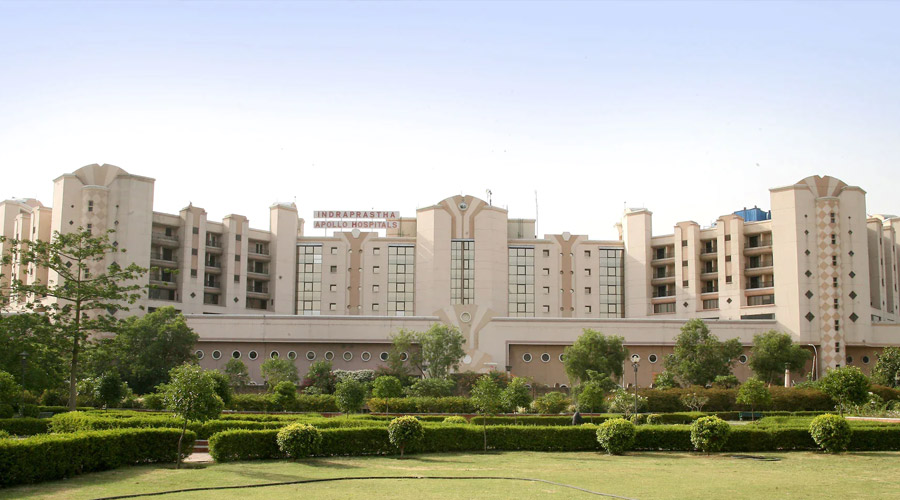
Indraprastha Apollo Hospital, New Delhi
Established in 1996, Indraprastha Apollo Hospital is NABL and JCI accredited. Apollo Group offers 10,000 beds across 64 hospitals, more than 2,200 pharmacies, over 100 primary care & diagnostic clinics and 115 telemedicine units across 9 countries. Indraprastha Apollo Hospital has 52 specialties under one roof.
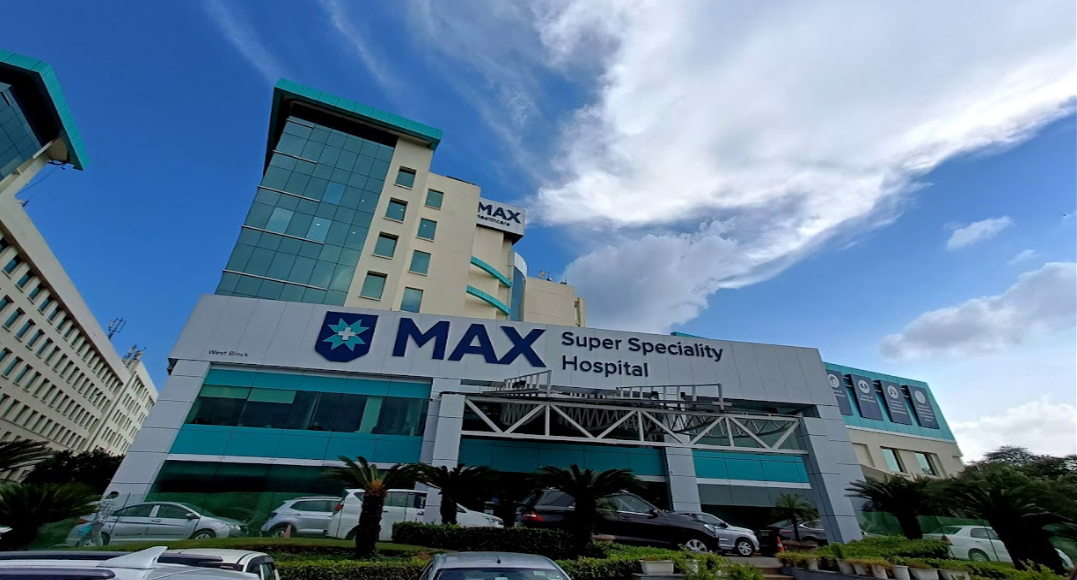
Max Super Speciality Hospital, Saket
Max Super Speciality Hospital Patparganj, Delhi has been one of the top medical care facilities for people living in India as well as internationally. It is home to one of the best speciality treatment centres with the best doctors renowned in India and internationally.
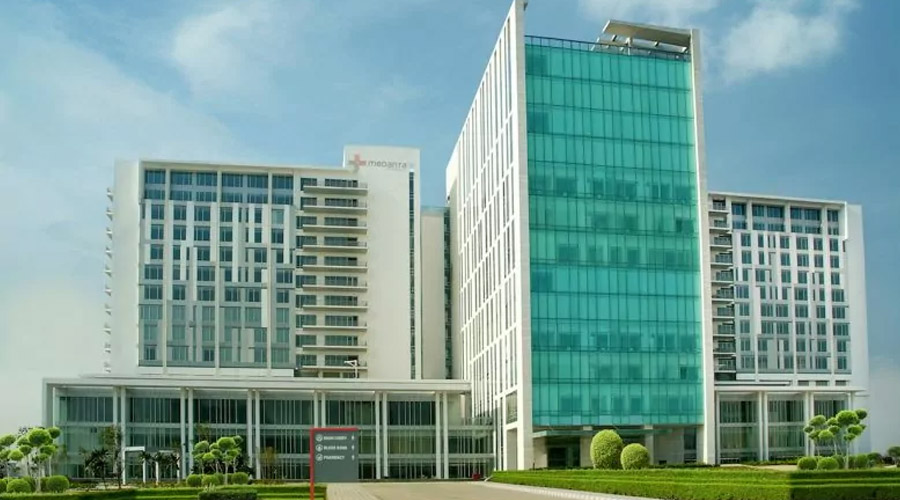
Medanta – Multi-Super Specialty Hospital
Medanta – The Medicity is one of India’s largest multi-super specialty institutes located in Gurgaon, a bustling town in the National Capital Region. Founded by eminent cardiac surgeon, Dr. Naresh Trehan, the institution has been envisioned with the aim of bringing to India the highest standards of medical care along with clinical research, education and training.
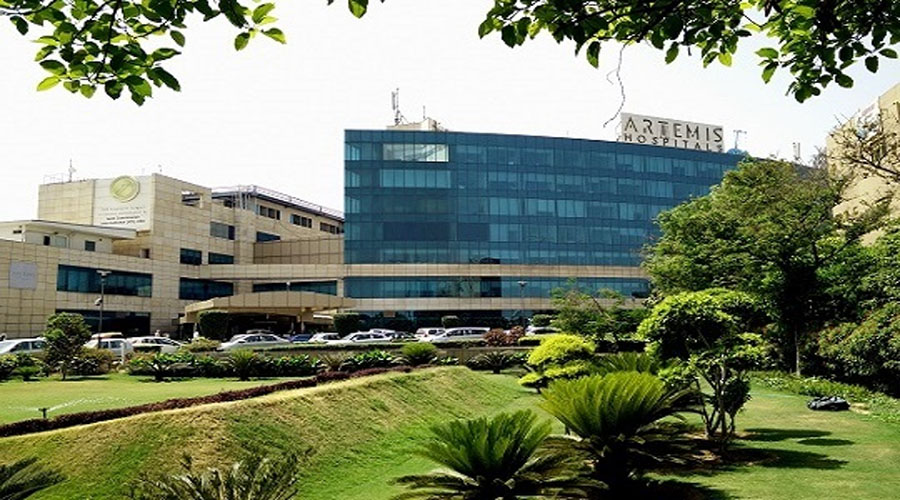
Artemis Hospital – Gurugram, NCR Delhi
Artemis Health Institute, established in 2007, is a healthcare venture launched by the promoters of the Apollo Tyres Group. Artemis is the first Hospital in Gurgaon to get accredited by Joint Commission International (JCI) (in 2013). It is the first Hospital in Haryana to get NABH accreditation within 3 years of start up.
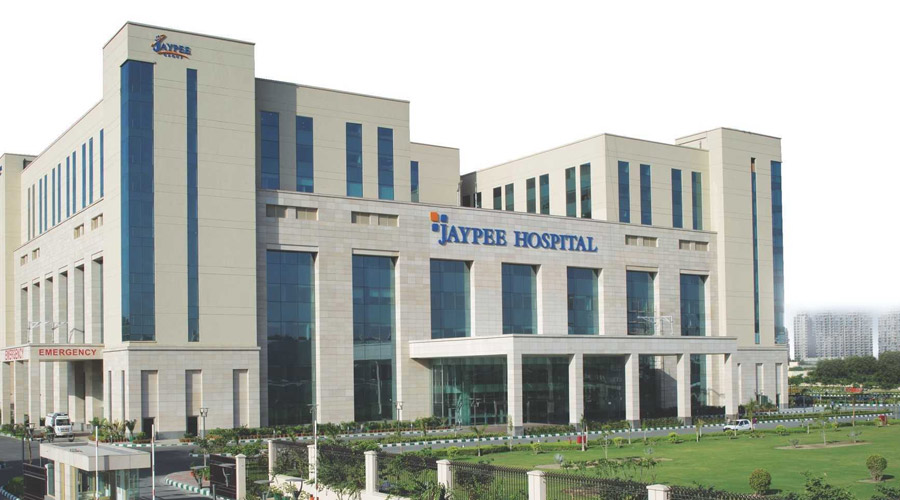
Jaypee Multi-Super Speciality Hospital – Noida
The Jaypee Hospital was conceptualized by our revered Founder Chairman, Shri Jai Prakash Gaur with the vision of promoting world-class healthcare amongst the masses by providing quality and affordable medical care with commitment.
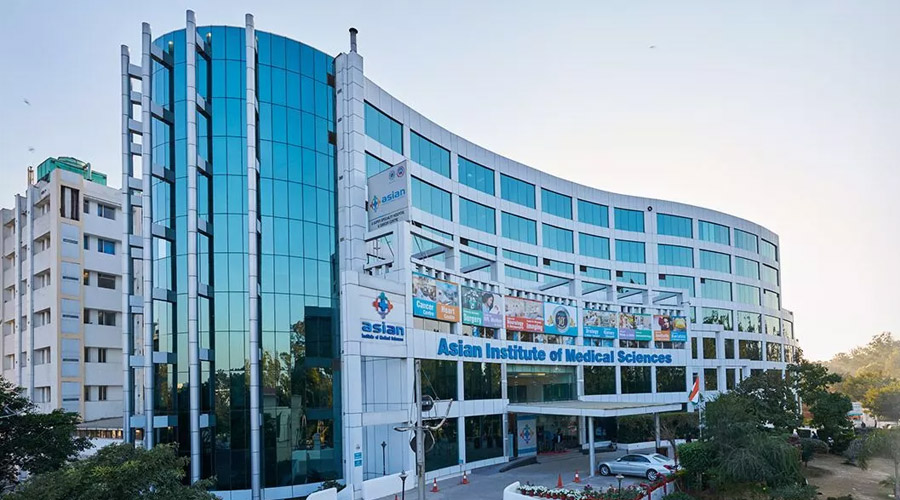
Asian Institute of Medical Sciences
425-bedded super speciality tertiary care hospital is truly futuristic in its services & technology and brings together some of the most talented medical professionals in India. The hospital has been accredited with NABH and NABL accreditations and is equipped with state-of-the-art technology.
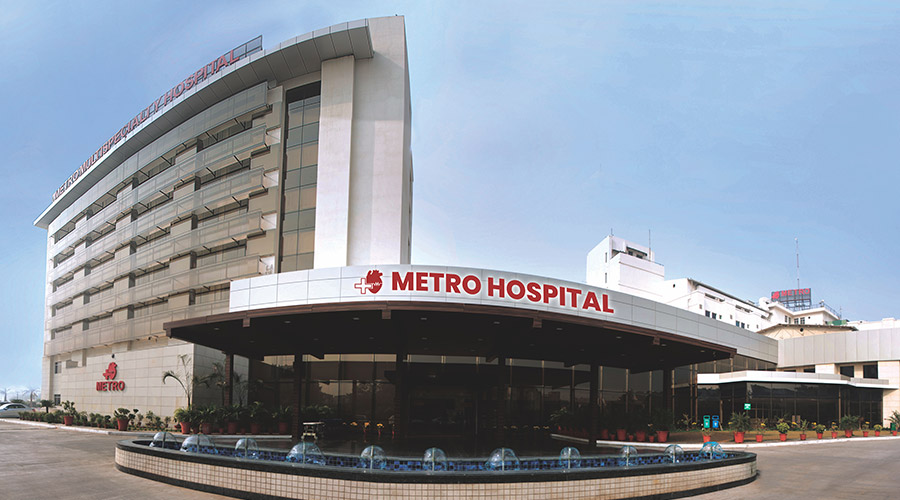
Metro Heart Institute with Multispeciality
Metro Group of Hospitals is a group of 11 hospitals and 1 college (Metro College of Health Sciences and Research), having more than 2500 beds flourishing hospitals and leading one of the biggest group of hospitals in India.

QRG Super Speciality Hospital
QRG Super Speciality Hospital isn’t just another hospital but an amalgamation of the best services the healthcare segment can offer. Our excellent medical infrastructure houses a Critical Care Medicine unit for patients with life threatening diseases.

Sarvodaya Hospital, Faridabad
Sarvodaya Hospital, A unit of Anshu Hospitals Limited, over the years, has grown into a ‘centre of excellence, commanding the respect of its peers, trust of its patients and complete commitment of its team. Established in 1997, Sarvodaya Hospital is both NABH and NABL accredited.
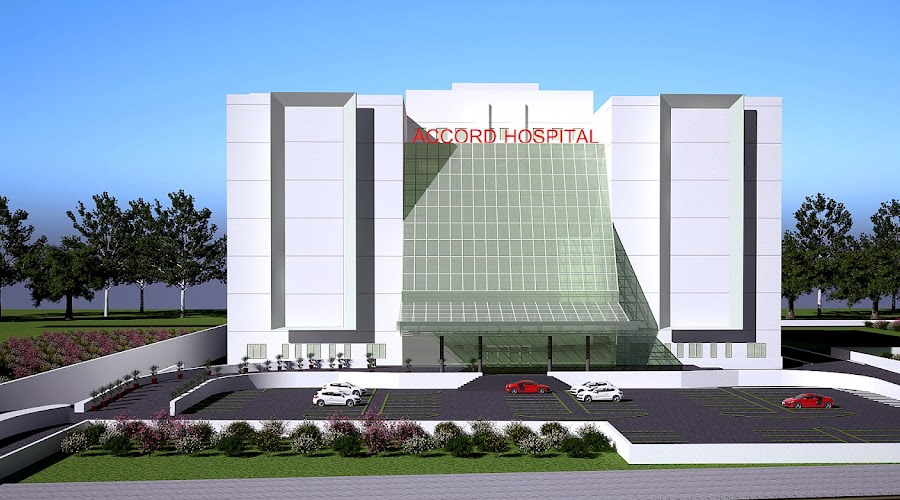
Accord Superspeciality Hospital – Faridabad
The story of Accord began with the thought of leveraging the new age technology with the healthcare infrastructure to serve the patients rightly, effectively, and timely. Accord Superspeciality Hospital is the best hospital in Faridabad, India.

Narayana Superspeciality Hospital – Gurugram
Nestled close to DLF Cyber City and the Delhi – Jaipur Highway, Narayana Superspeciality Hospital is a NABH accredited world-class medical facility catering to the healthcare needs of the NCR region. Featuring experienced medical professionals and the latest in medical infrastructure, the hospital represents Narayana Health’s commitment to quality medical care and patient service.

W Pratiksha Hospital – Gurugram
W Pratiksha Hospital in Gurgaon, the flagship hospital of Pratiksha Group is a one-of-its-kind facility in Gurgaon that brings to you 30 years of experience in treating thousands of happy patients across multiple hospitals and clinics in India.

Fortis Hospital, Noida
Fortis hospital, Noida is one of the oldest & most trusted hospital in Noida. It is a state-of-the-art facility with over 200 beds and 7 operational theaters. The hospital is well known for having one of the most trusted Neurosciences department, Kidney & Liver Transplant Programmes in Noida, with over 1500+ successful transplants.

Paras Hospitals, Gurugram
Paras Hospitals, Gurugram is the 250 bedded flag ship hospital of Paras Healthcare. It is a state of the art multi super specialty hospital in gurgaon providing a complete spectrum of advanced medical and surgical interventions with a comprehensive mix of inpatient and outpatient services.

Max Hospital – Gurugram
The 92+ bed Max Hospital Gurugram has treated over 5 lakh patients, applying its expertise across 35 specialised fields including Cardiac Sciences, Minimal Access, and Laparoscopic Surgery, Neurosciences, Urology, Orthopaedics, Aesthetics, and Reconstructive Surgery, and Nephrology.

CK Birla Hospital – Gurugram
The CK Birla Hospital is a NABH accredited, multi-speciality hospital located in Gurgaon. It is a proud part of the $2.4 billion diversified CK Birla Group that has also been serving India’s healthcare needs for over 50 years.
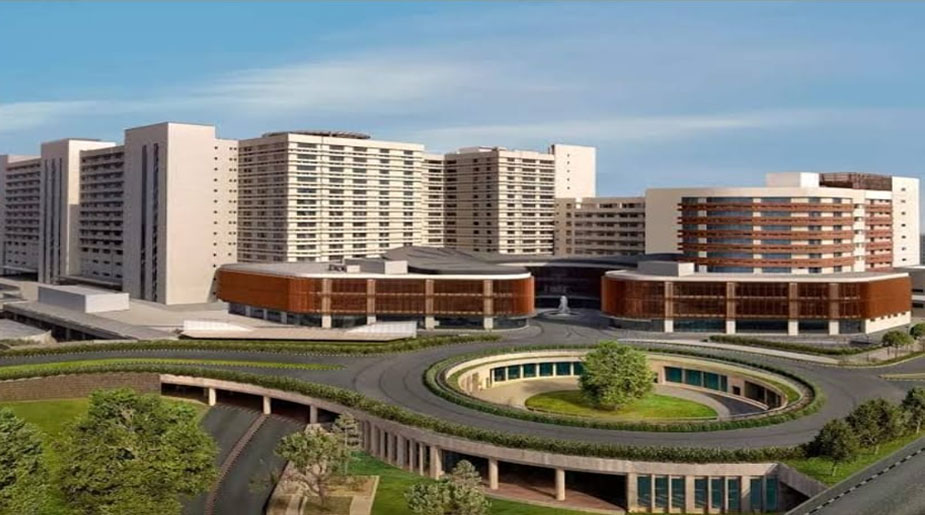
Amrita Hospital, Faridabad
Amrita Hospital, Faridabad is an institution where technology and expertise blend seamlessly with empathy and attention to detail. The hospital in Faridabad Sector – 88 has been designed with its environmental impact at the forefront. The architects began by using construction materials that comply with national and international green building standards.


